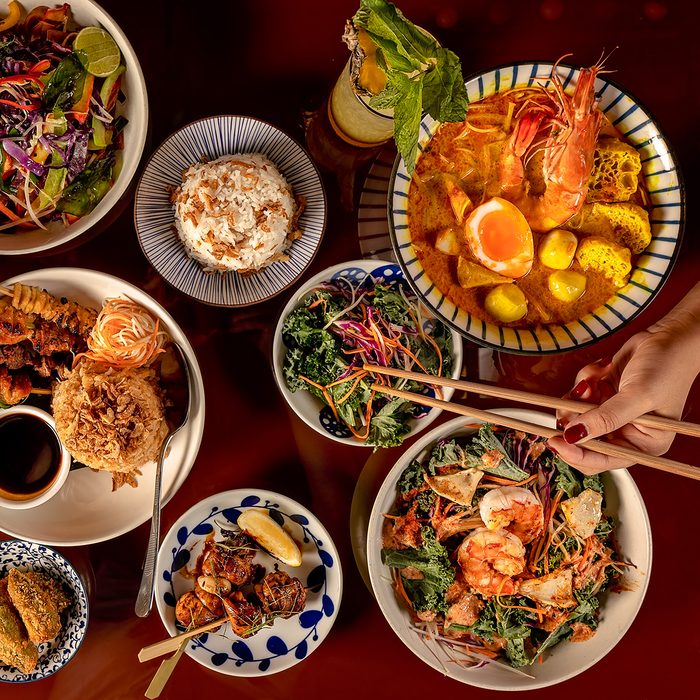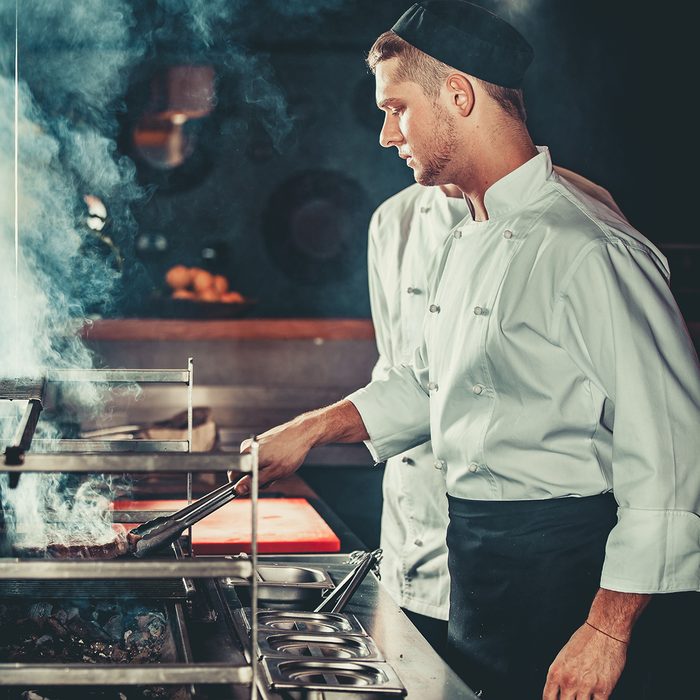
If you’re a self-proclaimed foodie (read: all of us at Taste of Home), being a food critic sounds like a dream job. Seriously, what’s not to like about frequenting the best restaurants in America, eating all different kinds of food and sharing thoughts about your dining experience? We consulted with some real food critics and restaurant reviewers to see what their job description really entails.

They Might Visit Up to 10 Restaurants Per Day
Some food critics set ambitious goals that extend way past the traditional three meals per day. “If I’m traveling, or on a road trip to review restaurants, I’ll go to 5 to 10 restaurants in a day,” says Michael Stern, co-author of Roadfood: An Eater’s Guide to More Than 1,000 of the Best Local Hot Spots and Hidden Gems Across America and co-founder of Roadfood.com.
“Needless to say, I can’t have 10 full meals in one day,” he adds, “so oftentimes, I’ll just have a few bites of food at each restaurant—that’s the goal, especially early in the day.”

Some Don’t Write Any Negative Reviews
We’ve all read a cringe-worthy review about a product or place before, but there are actually food critics out there who keep their unfavorable opinions to themselves. “I don’t do negative reviews,” says Stern. “I write about places that I like, and that’s that.” Good news for cooks who want to bring restaurant dishes home, these copycat recipes have rave reviews.

…But When They Do, the Reviews Leave a Lasting Impact
Though she doesn’t write bad restaurant reviews any longer, Tina Wong, founding editor and photographer of TheWanderingEater.com, recalls a time when one negative write-up led to a huge ordeal. “I wrote a bad review that was about a fairly new restaurant…a few days later, it was picked up by a larger restaurant information and gossip website, and they linked my write-up. The next thing I knew, the restaurant closed down six to eight weeks after my piece was passed around.” Look for these red flags to tell you if the restaurant is bad before you start eating.

If You’re Recognized, It Can Be Impossible to Get an Accurate Review
“In a restaurant to whom a review really matters, a person who is a known critic is treated differently, which makes it impossible to find out what it’s really like to dine there,” says Stern. “When a restaurant did know I was a restaurant critic, it was often a worse experience because the restaurant staff would stumble over themselves.” Here’s what restaurant hosts wish customers would never do again.

A Lot of Studying Goes Into Reviewing Dishes
Wong makes note that if she’s eating and reviewing a dish that’s unfamiliarl—like these regional hidden-gems—she’ll do her homework to make her opinion is an educated one. “If it’s a traditional dish I’ve never (or have rarely) eaten that I’m reviewing, I keep an open mind about it since I don’t want to disrespect it,” she says. “I read about that dish or food culture after the fact, to gain some understanding as to why that dish was cooked like that, tasted that way or had an unfamiliar texture.”

It Doesn’t Always Pay the Bills
Although it certainly depends on the individual restaurant reviewer or food critic, this job isn’t always the most reliable form of income. “This isn’t my full-time job since, like everyone, I have bills to pay,” says Wong. “This job does not pay in terms of money, but it pays in terms of experience and knowledge.”

Their Kind Words Change a Restaurateur’s Life
Sure, a good restaurant review could generate a bit more foot traffic to an otherwise overlooked mom-and-pop diner. But Stern reveals that there’s an even more rewarding aspect to the job. “A lot of people have begun to realize that their BBQ restaurant or pie bakery isn’t just a business, but an aspect of culture,” says Stern. “It’s like music, and how it’s an expression of who people are—so is our food.”
More than anything as a restaurant and food reviewer, Stern loves to see the growth of a business and its owners. “That to me is the most rewarding aspect…that I can be some part of a restaurateur recognizing that they’re not just in the business of nutrition, but the business of culture…preserving something that makes life what it is. Not just food on a plate. In those moments, it makes me really happy doing what I do.”

Your Own Culture Can Help Influence a Food Review
Being raised by parents who cook traditional Chinese dishes has helped Wong get accustomed to unexpected flavors. “I have the advantage of being raised with Chinese food, so I’m exposed to a lot of funky foods, flavors and textures compared to most American people,” she says. “However, there are cuisines I am not familiar or exposed to, and knowing fully about the culture of a dish informs me of what to expect and corrects my distortion of what I experienced.”

Yes, There Are Serious Work Perks
“I won’t deny it, I do get perks,” says Wong. “In general, the best one is when the chef or manager sends out extra dishes other than what I ordered.” Check out other behind-the-scenes secrets from a restaurant chef.

A Good Review Can Keep a Business Open
A good food critic should never underestimate the power of his or her words, and the impact it can have on the restaurant they’re writing about. “I’ve actually gotten a letter from an owner of a restaurant saying that they were thinking of closing down the business,” says Stern. “They were in a rut, and all of a sudden, business increased because people read about them in our book.”
Note: Every product is independently selected by our editors. If you buy something through our links, we may earn an affiliate commission.
